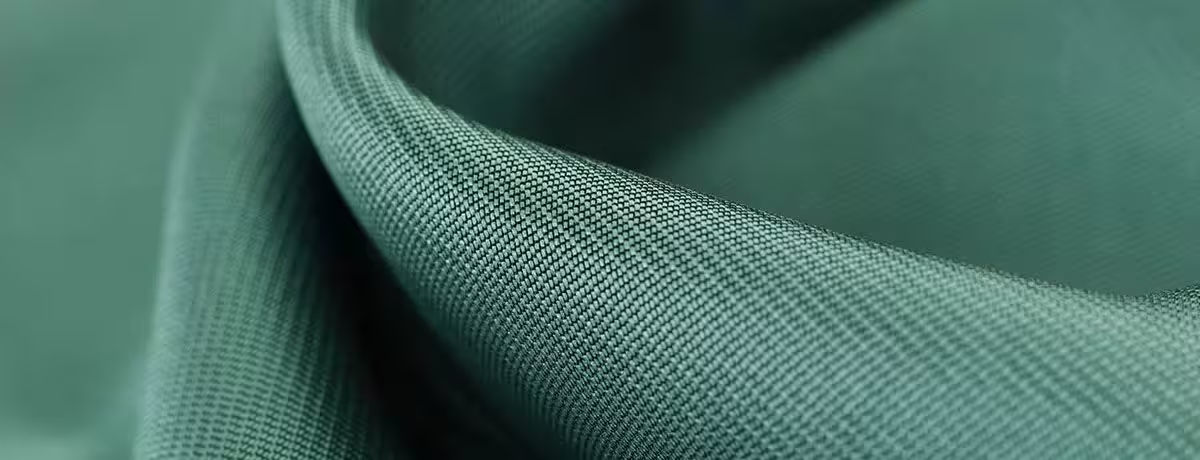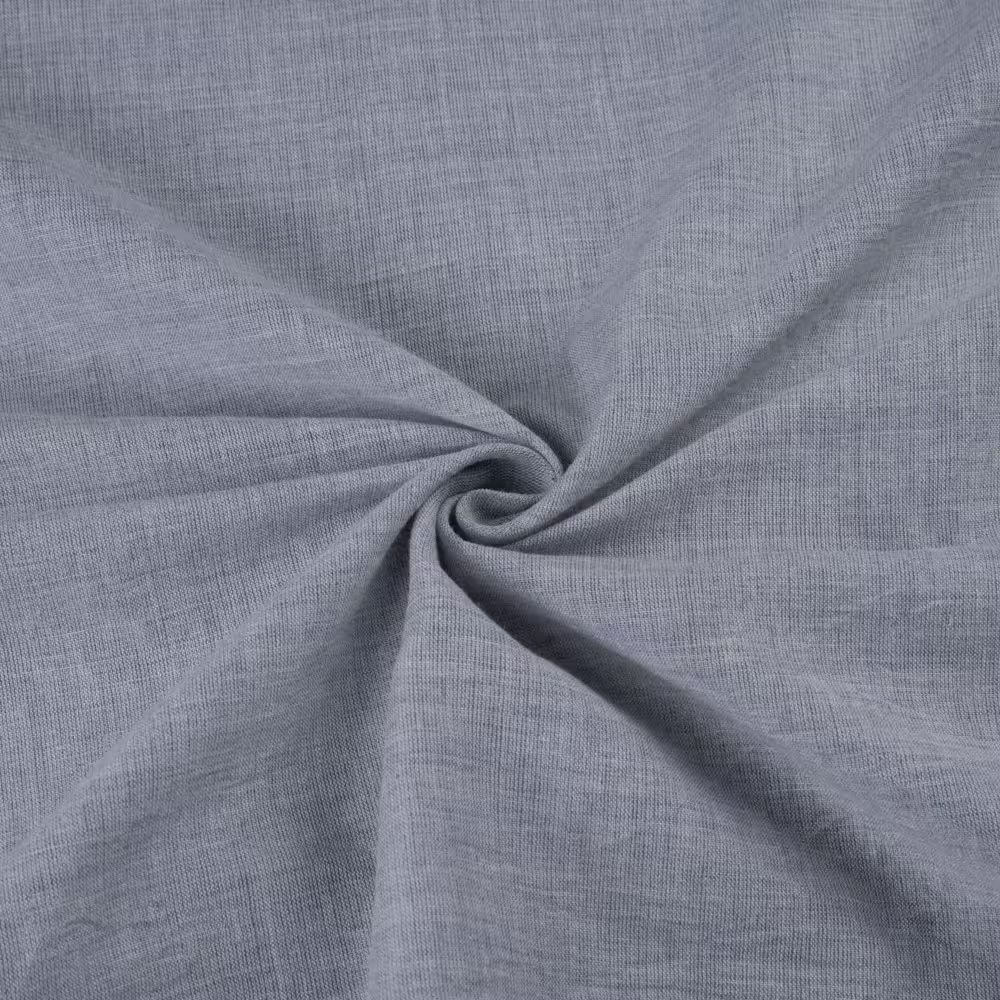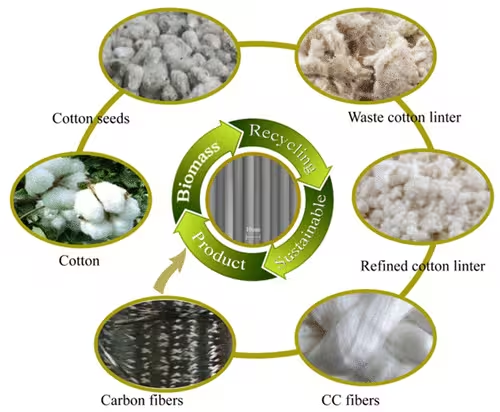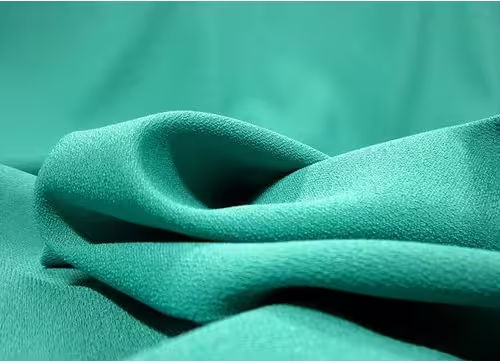Polyester vs Cotton: Choose Your Fabric
Discover the complete guide to polyester vs cotton. Compare their properties, pros and cons, durability, comfort, sustainability, and best uses to choose the right fabric for your needs.


Are you trying to decide between polyester and cotton for your clothes, bedding, or everyday essentials? You’re not alone. The debate of polyester vs cotton is everywhere, and for good reason. Both fabrics have unique qualities that make them stand out. Polyester is famous for its strength and low maintenance, while cotton is loved for its breathability and soft feel. But which one is truly better for you?
This guide is your one-stop solution for everything about polyester vs cotton. We’ll break down their differences, pros and cons, and help you choose the right fabric for your needs—whether you care about comfort, durability, skin-friendliness, or sustainability. Let’s explore the world of fabrics and find out which one fits your lifestyle best.
Polyester and Cotton
When shopping for clothing, bedding, or even pillows, you’re often faced with a familiar dilemma: polyester vs cotton. Each fabric has its own strengths, fan base, and ideal use cases. Understanding their differences can help you make better decisions based on comfort, durability, and lifestyle needs.
What is Polyester?
Polyester is a man-made synthetic fiber created from petrochemicals. It’s known for being strong, durable, and low-maintenance, making it popular in sportswear, home textiles, and fashion.

How is Polyester Made?
Polyester is manufactured through a chemical process:
- Petroleum-based chemicals are melted and spun into long filaments.
- These filaments are then woven or knitted into fabric.
- The result is an affordable, versatile textile with broad applications.
Key Properties of Polyester
- Highly durable – resists shrinking, stretching, and tearing.
- Wrinkle-resistant – holds shape without ironing.
- Quick-drying – great for activewear and travel.
- Colorfast – retains prints and dyes without fading.
- Low breathability – can feel warm or less breathable in hot climates.
- Eco option available – many brands now offer recycled polyester for a lower environmental impact.
What is Cotton?
Cotton is a natural fiber harvested from the fluffy bolls of the cotton plant. It’s prized for its softness, breathability, and comfort, making it a top choice for everyday wear and home essentials.

How is Cotton Produced?
The cotton production process is more natural:
- Grown and harvested from cotton plants.
- Fibers are cleaned, spun into yarn, and then woven or knitted.
- Organic cotton is cultivated without harmful pesticides and uses sustainable farming practices.

Key Properties of Cotton
- Soft and breathable – perfect for sensitive skin and summer wear.
- Moisture-absorbent – helps keep you cool and dry.
- Natural and biodegradable – better for the environment.
- Easy to wash – machine washable and low maintenance.
- Prone to wrinkling and shrinkage – requires careful laundering or pre-shrunk options.
Polyester vs Cotton – Key Differences
Choosing between polyester and cotton can feel confusing, but understanding the core differences makes it much easier. Each fabric has its own story, texture, and ideal use. Let’s break down the main points so you can choose what works best for your lifestyle.
1. Natural vs Synthetic Origins
- Cotton is a natural fiber grown from the cotton plant. It undergoes minimal processing, making it a favorite among those seeking eco-friendly and sustainable options.
- Polyester, in contrast, is a synthetic fiber made from petroleum-based chemicals. It’s completely man-made and engineered for durability and performance.
If natural vs synthetic matters to you, this is the most significant difference.
2. Feel and Comfort
- Cotton
- Soft, breathable, and gentle on sensitive skin.
- Feels natural and non-clingy.
- Ideal for casual and everyday clothing.
- Polyester
- Lightweight with a smooth, slightly slick feel.
- Less breathable and can cling to the body.
- Common in sportswear due to flexibility and lightness.
Polyester-cotton blends are common to combine comfort with durability.
Breathability and Moisture Management
- Cotton
- Highly breathable and absorbs moisture.
- Keeps you cool and comfortable in hot weather.
- Best for summer wear and humid climates.
- Polyester
- Does not absorb moisture but wicks sweat away.
- Dries quickly but may feel hot or sticky.
- Great for workouts, not ideal for extreme heat.
Cotton = absorbent & cool. Polyester = quick-dry & performance-ready.
3. Durability and Longevity
- Polyester
- Extremely durable.
- Resists stretching, shrinking, and wrinkling.
- Maintains shape and color even after repeated washes.
- Cotton
- Softer but more delicate.
- Prone to shrinking, wrinkling, and fading over time.
- High-quality cotton lasts, but still less durable than polyester.
If you want something that looks newer for longer, go with polyester.
4. Care and Maintenance
- Polyester
- Low-maintenance: machine washable, quick-drying, and rarely needs ironing.
- Resists stains and holds dye well.
- Cotton
- Requires more care: can wrinkle or shrink in hot washes.
- May need ironing and color may fade over time.
Busy lifestyle? Polyester makes laundry simpler.
5. Cost and Affordability
- Polyester
- More budget-friendly.
- Cost-effective for uniforms, bulk items, or fast fashion.
- Cotton
- Typically more expensive, especially organic or premium variants.
- Offers better comfort and breathability, which some consider worth the price.
Cotton is an investment in comfort. Polyester is a win for value.
Pros and Cons of Polyester and Cotton
Choosing between polyester and cotton often comes down to what you value most—comfort, durability, or easy care. Both fabrics have unique advantages and a few drawbacks. Let’s break down the pros and cons of each so you can make the best choice for your lifestyle.
Advantages and Disadvantages of Polyester
Advantages
- Polyester stands out for its durability and strength.
- It resists stretching, shrinking, and wrinkling, so your clothes keep their shape and look neat even after many washes.
- If you want a fabric that lasts, polyester is a smart pick.
- It also dries quickly and wicks moisture away from your skin, making it the top choice for sportswear and activewear.
- Polyester is lightweight and holds color well, so printed designs stay vibrant for a long time.
- Maintenance is simple—just wash and wear, with little need for ironing.
Disadvantages
- It doesn’t breathe as well as cotton, so it can feel hot or sticky in warm weather.
- If you have sensitive skin, pure polyester may cause irritation or itchiness.
- Polyester is also made from petroleum-based chemicals, which raises environmental concerns for some buyers.
Advantages and Disadvantages of Cotton
Advantages
- Cotton is loved for its softness and natural feel.
- It’s gentle on the skin and highly breathable, making it perfect for hot weather or anyone with sensitive skin.
- Cotton absorbs moisture well, keeping you cool and comfortable throughout the day.
- It’s also biodegradable and comes from a renewable source, which makes it a more eco-friendly option compared to synthetic fabrics.
Disadvantages
- It tends to wrinkle and can shrink or lose shape after repeated washing unless you take extra care.
- Cotton dries slowly and may feel damp if you sweat a lot, so it’s less ideal for intense workouts or rainy days.
- Over time, cotton can fade or show signs of wear, especially in busy spaces or with frequent use.
Which Fabric is Better for Different Uses?
You want the right fabric for the right job. Polyester vs cotton isn’t just a style choice—it’s about comfort, performance, and practicality. Let’s see where each fabric shines, so you always pick the best one for your needs.
1. Everyday Clothing
Cotton is the go-to for everyday wear. It feels soft, breathes well, and keeps you comfortable all day. If you have sensitive skin or just want that natural touch, cotton t-shirts, shirts, and dresses are perfect. Cotton doesn’t cling, so it’s great for relaxed, casual outfits.
Polyester also appears in everyday clothing, often blended with cotton to add durability and reduce wrinkles. A polyester-cotton blend gives you the best of both worlds—softness from cotton, strength from polyester.
2. Sportswear and Activewear
Polyester leads the race for sportswear and activewear. It wicks moisture away from your skin and dries quickly, so you stay cool and dry during workouts. Polyester doesn’t lose shape or stretch out, even after many washes.
For intense activities or outdoor adventures, polyester shirts, shorts, and leggings keep you comfortable and looking sharp. Cotton, while soft, holds onto sweat and dries slowly, which isn’t ideal for heavy exercise.
3. Workwear and Uniforms
Durability is key for workwear and uniforms. Polyester stands out here because it resists stains, wrinkles, and fading. It keeps its shape and color, even with frequent washing. That’s why many uniforms, aprons, and work shirts use polyester or polyester blends.
Cotton uniforms feel softer and are better for jobs in hot climates, but they may wear out faster and need more care to look neat.
4. Bedding and Home Textiles
For bedding and home textiles, comfort is everything. Cotton sheets, pillowcases, and blankets feel soft, breathable, and gentle against your skin. They’re perfect for a cool, comfortable night’s sleep, especially in summer.
Polyester bedding is more durable and resists wrinkles, so it’s easier to care for. Many people choose a cotton-polyester blend for bedding—it’s soft, lasts longer, and stays smooth after washing.
Sustainability and Environmental Impact
When you compare polyester vs cotton, sustainability becomes a big part of the conversation. Today, more people want fabrics that are gentle on the planet. Let’s look at how cotton and polyester stack up when it comes to their environmental impact, and what new options are making a difference.
Cotton’s Environmental Footprint
Cotton is a natural fiber, but growing it takes a toll on the environment. Cotton farming uses a lot of water—about 2,700 liters just for one t-shirt. It also relies heavily on pesticides and insecticides, which pollute water and harm the soil. Land use is another concern, as cotton fields cover millions of acres worldwide and can lead to soil degradation and loss of biodiversity. While cotton is biodegradable and compostable, mixing it with synthetics (like in polycotton blends) makes it less eco-friendly.
Polyester’s Environmental Impact
Polyester is a synthetic fiber made from petroleum. Its production generates greenhouse gases and toxic waste. Polyester doesn’t biodegrade, so it can linger in landfills for hundreds of years. Microplastics from polyester fabrics also pollute oceans and waterways. On the plus side, polyester is more durable and requires less water and energy to produce and wash compared to cotton. Polyester/cotton blends last longer and need less frequent replacement, which can lower their overall carbon footprint.
Which is More Eco-Friendly?
Neither fabric is perfect for the environment. Cotton uses more water and chemicals, while polyester creates more greenhouse gas emissions and microplastic pollution. Some studies show polyester has a slightly lower overall environmental impact because it lasts longer and uses less water, but it’s not biodegradable and can harm marine life with microplastics. Cotton, while natural, can be more sustainable if grown organically and processed responsibly.
The Rise of Organic Cotton and Recycled Polyester
The good news is that better options are on the rise. Organic cotton skips the harsh chemicals and uses less water, making it much gentler on the planet. Recycled polyester, made from old plastic bottles or used polyester fabrics, reduces waste and cuts down on energy use. Both organic cotton and recycled polyester help lower the environmental impact of your clothes and home textiles.
Polyester-Cotton Blends: The Best of Both Worlds?
When you think about polyester vs cotton, blends often come up as the perfect middle ground. Cotton-polyester blends mix the best qualities of both fabrics. They offer comfort, durability, and easy care all in one. Let’s explore what makes these blends so popular and why they might be your best choice.

What Are Cotton-Polyester Blends?
Cotton-polyester blends combine natural cotton fibers with synthetic polyester fibers. The ratio can vary, such as:
- 80% cotton / 20% polyester
- 50% cotton / 50% polyester
- 35% cotton / 65% polyester
Each ratio impacts the feel, durability, and breathability:
- A 50/50 blend balances softness and strength.
- A higher polyester percentage increases wrinkle resistance and longevity, but reduces breathability.
These blends are ideal if you want the softness of cotton with the easy maintenance and strength of polyester.
Pros of Cotton-Polyester Blends
- Combines cotton’s breathability and softness with polyester’s durability
- Quick-drying and holds shape well
- Resists shrinking and wrinkling better than pure cotton
- Holds color well after multiple washes
- Easier to maintain than 100% cotton fabrics
Cons of Cotton-Polyester Blends
- Less breathable than 100% cotton, may feel warmer in hot weather
- Can be irritating to sensitive skin (though softened by cotton content)
- Not as eco-friendly as organic cotton due to synthetic polyester
- Blended fabrics are not biodegradable like pure cotton
Common Uses for Blended Fabrics
- T-shirts and casual wear – for daily comfort with fewer wrinkles
- Sportswear and activewear – especially those with higher polyester for moisture-wicking
- Work uniforms and aprons – where durability and stain resistance matter
- Bedding and home textiles – offering softness, durability, and easy maintenance
- Bed linens (50/50 blends) – soft yet long-lasting
How to Choose the Right Fabric for You
Choosing between polyester vs cotton isn’t just about style—it’s about what fits your life best. The right fabric depends on your climate, how you plan to use it, your skin sensitivity, and even your personal preferences. Let’s break down how you can make the smartest choice for your needs and how to easily tell the difference between these two popular fabrics.
Factors to Consider (Climate, Use, Allergies, Preferences)
Climate
Think about your climate first. Cotton works best in hot, humid places because it breathes and absorbs moisture well. If you sweat easily or want something for summer, cotton keeps you cool and comfortable. Polyester shines in cooler weather or for activities where you need quick-drying, durable clothes—like sports or outdoor work.
Use Case
Consider how you’ll use the fabric. For everyday wear, loungewear, or bedding, cotton’s softness is hard to beat. If you want something for activewear, uniforms, or travel, polyester’s wrinkle resistance and strength make it a smart pick. Sensitive skin? Cotton is hypoallergenic and less likely to cause irritation.
Preferences
Your preferences matter too. Do you want easy care and less ironing? Go for polyester or a polyester-cotton blend. Prefer a natural, eco-friendly feel? Cotton or organic cotton is your answer.
Tips for Distinguishing Polyester from Cotton
Not sure what fabric you have? Here’s how you can tell the difference between polyester and cotton at home.
Visual and Tactile Inspection
- Look at the fabric closely. Cotton usually has a matte finish and feels soft, smooth, and natural to the touch.
- Polyester tends to look shinier and feels slick or cool.
- Rub the fabric between your fingers. Cotton feels warm and fluffy, while polyester feels lighter and a bit slippery.
Heat and Water Test Methods
- Water Test: Drop a little water on the fabric.
- Cotton absorbs water quickly and darkens.
- Polyester resists water, and the drop may bead up or roll off.
- Heat Test (for small, safe samples only):
- Carefully burn a tiny edge of the fabric.
- Cotton burns with a soft, ashy smoke and smells like burning paper.
- Polyester melts, shrinks away from the flame, and smells like plastic.
Conclusion
Polyester vs cotton is a classic debate, but the right choice depends on your needs. Cotton offers softness, breathability, and is perfect for sensitive skin and hot climates. Polyester stands out for its durability, easy care, and performance in activewear. Blends give you the best of both worlds. Consider your climate, lifestyle, and preferences before deciding. Always check the fabric label and choose what feels best for you. Whether you want comfort, strength, or sustainability, now you have the knowledge to make the smartest choice for any occasion.
FAQs on Cotton vs Polyester
What are the disadvantages of polyester?
Polyester is less breathable, can feel hot or sticky in warm weather, and may irritate sensitive skin. It's also non-biodegradable and sheds microplastics.
Is cotton or polyester better for health?
Cotton is generally better for health, especially for sensitive skin, as it's natural, breathable, and hypoallergenic.
Is cotton or polyester better for summer?
Cotton is better for summer because it's breathable, absorbs sweat, and keeps you cooler in hot weather.
Is polyester or cotton better for winter?
Polyester is better for winter as it retains heat and dries quickly, making it ideal for layering and cold-weather wear.
Is 100% cotton cooler than polyester?
Yes, 100% cotton is cooler than polyester due to its natural breathability and moisture-absorbing properties.
Can I wear 100% polyester in summer?
You can, but it may feel warm and less breathable. It's better suited for light activity or blended fabrics in hot weather.
Launch your dropshipping business now!
Start free trialRelated blogs

What Is Business Casual for Women? The Complete 2026 Style Guide
Discover what business casual means for women in 2026. Learn outfit essentials, what to avoid, workplace examples, capsule wardrobes, and styling tips.

Best Place to Sell Clothes Online in 2026
Sell clothes online on top platforms worldwide. Compare fees, features, and audiences to find the best fit for your reselling business.

Are Jeans Business Casual? Here's the Definitive Answer
Wondering if jeans are business casual? Dark and white jeans work for restaurants and some offices. We break down when jeans work for business casual settings.


































